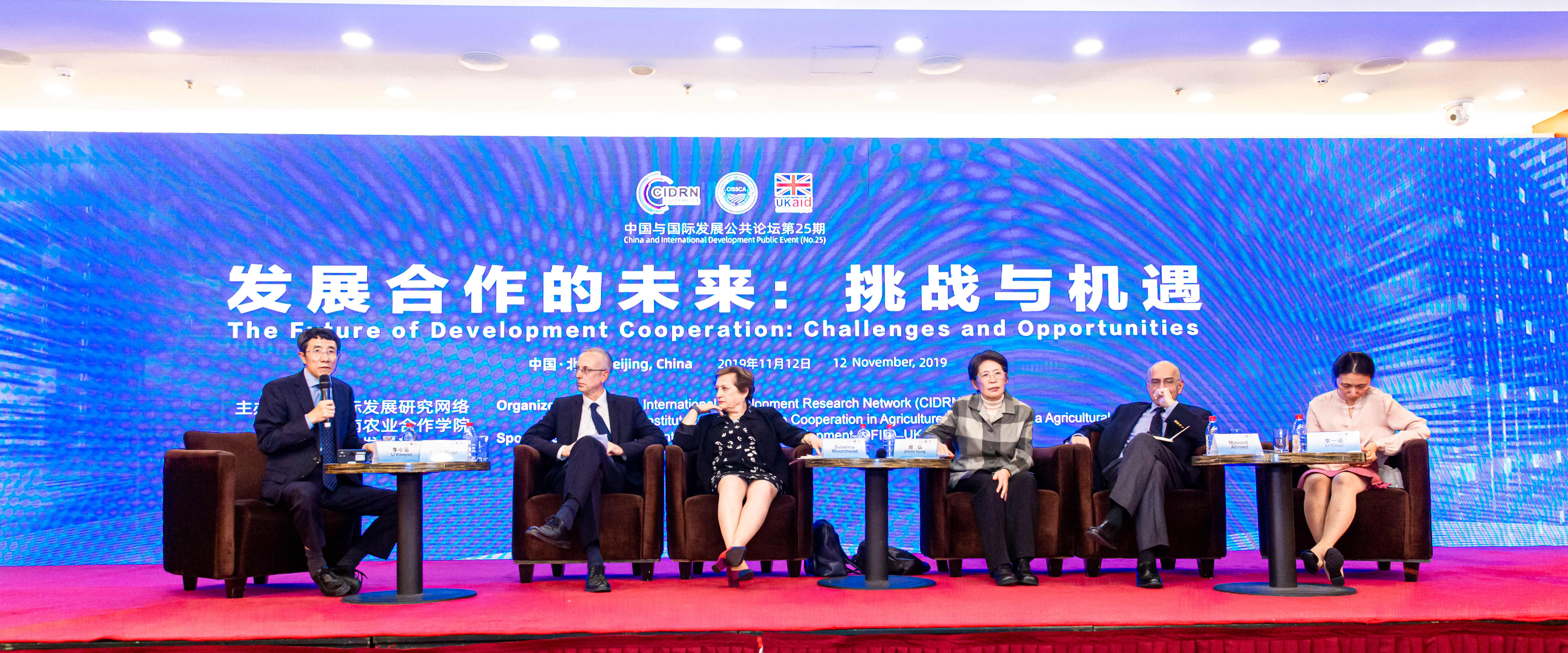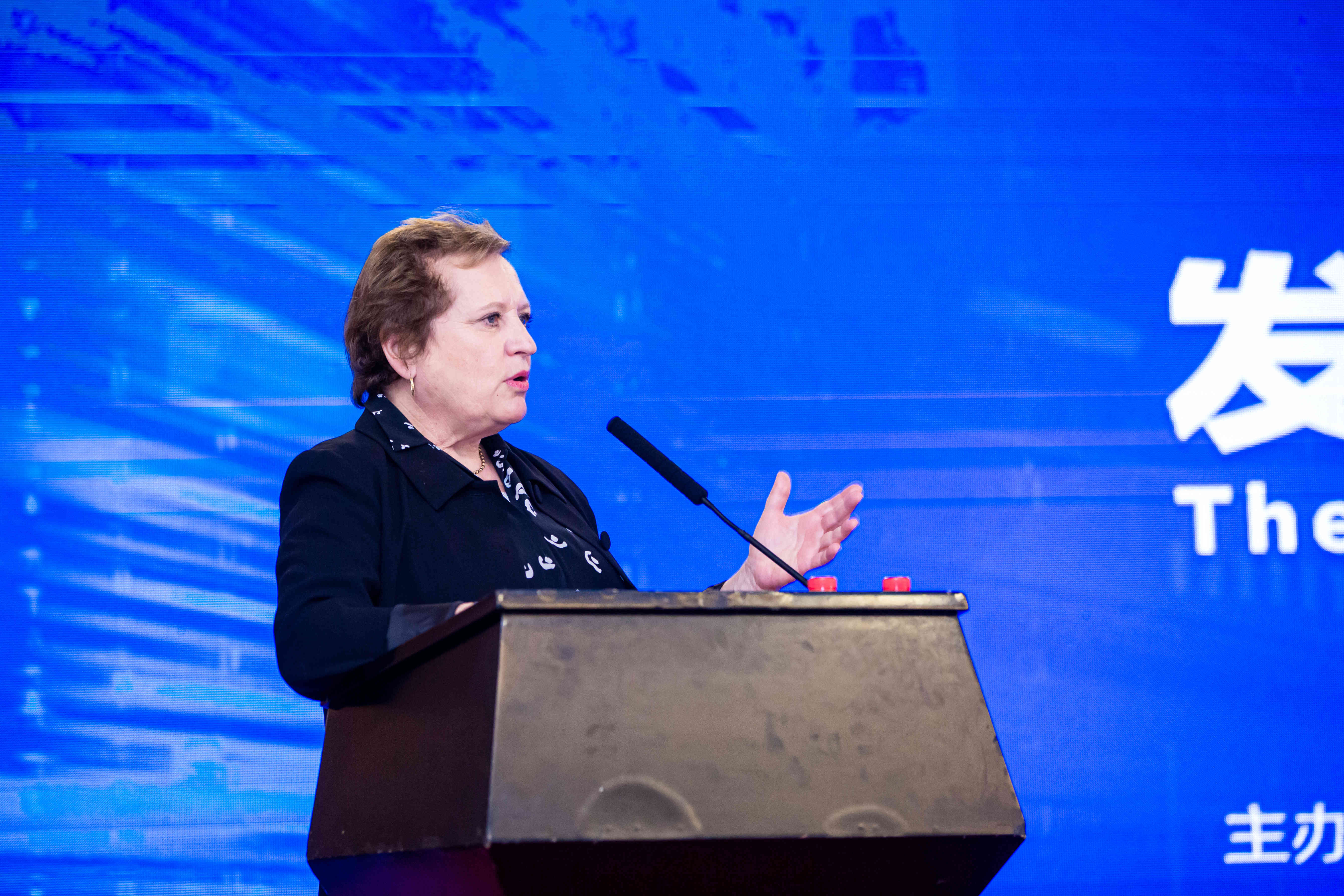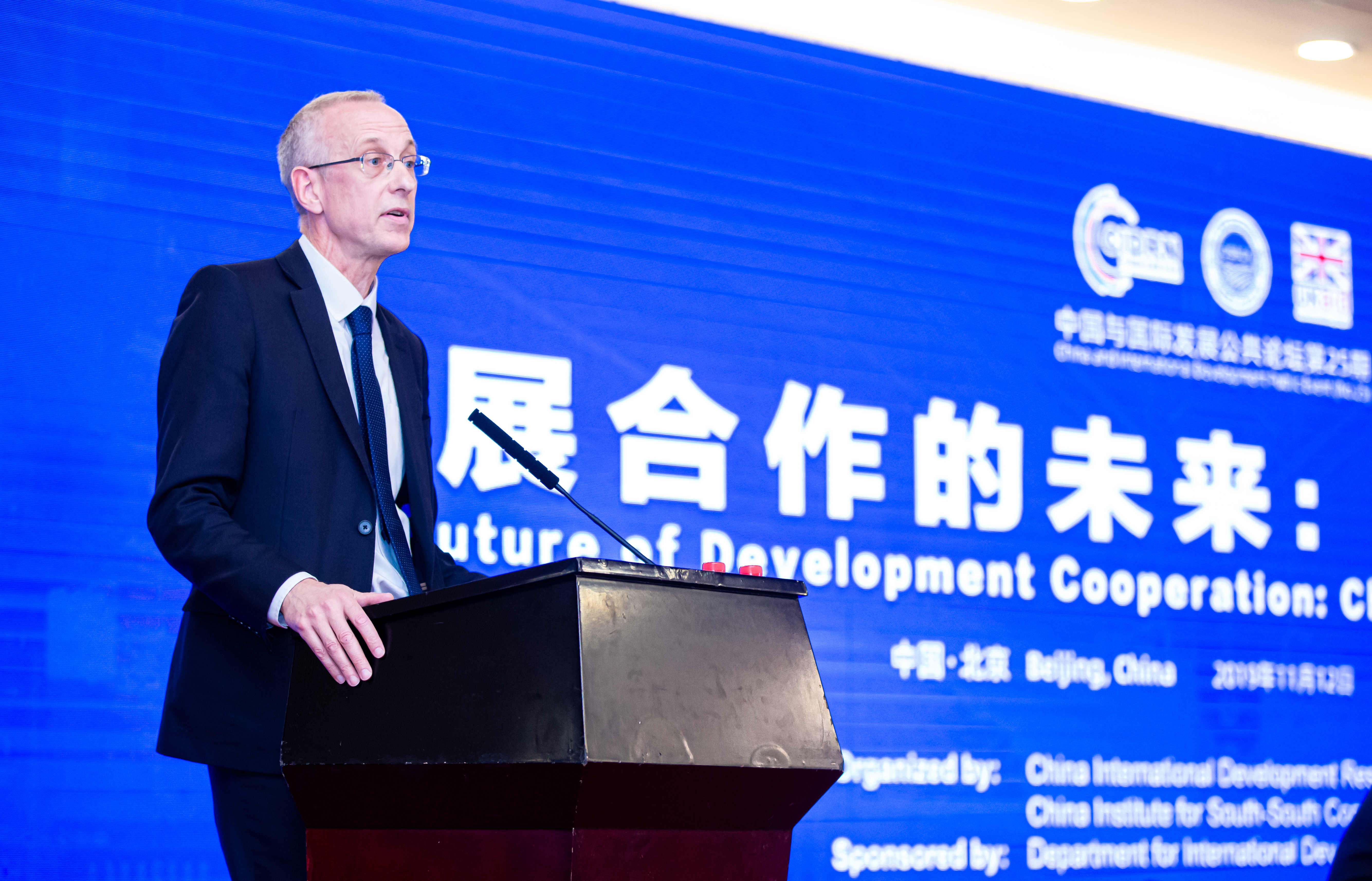Experts from China, OECD, the UK and many others gathered in Beijing on November 12 to exchange ideas on how to enhance knowledge sharing, improve local governance and source more financial support for realizing the UN 2030 Agenda.
"It is a very special time for us to talk about international development since the global development has come to a crossroad," Professor Li Xiaoyun, honorary dean of China Institute for South-South Cooperation in Agriculture (CISSCA) emphasized in his opening remarks.
"It is not really clear whether wealthy nations are still committed to their duties in terms of investing in global development agenda," Professor Li added.

The event is themed "The Future of Development Cooperation: Challenges and Opportunities." /CGTN Photo
The event is themed "The Future of Development Cooperation: Challenges and Opportunities." /CGTN Photo
"It's extremely a timely event since we're 10 years away from the UN 2030 Agenda. We're not going to make it if our development model is still operating in a usual way," said Susana Moorehead, chair of Development Assistance Committee at Organization of Economic Cooperation and Development (OECD-DAC). The OECD-DAC is responsible for distributing and monitoring official development assistance provided by OECD countries.
To realize the UN 2030 goals, traditional donor countries need transformation as international development cooperation is facing more complex challenges.
In recent years, the landscape of international development cooperation has changed beyond recognition. OECD, the rich country club based in Paris represents traditional donors. But the official development assistance (ODA) is still a precious resource.
"The money should be concessional and used in development. But OECD countries are failing in sourcing more finance. China could be a partner in this regard," Moorehead added.
"Let's not forget that the reason we achieved the Millennium Development Goals (MDGs) is because of the progress here in China," said Moorehead, further emphasizing that the OECD can learn more from China's experience. Both sides need to enhance cooperation.

Susana Moorehead, chair of Development Assistance Committee at Organization of Economic Cooperation and Development (OECD-DAC)
Susana Moorehead, chair of Development Assistance Committee at Organization of Economic Cooperation and Development (OECD-DAC)
The changing international development landscape calls for a renewed global partnership and collective approaches to global challenges. But what kind of challenges are we facing now?
"There are five challenges that need to be addressed," said Nick Dyer, director general for Economic Development and Department for International Development (DFID) of the UK.
"The first one is fragility which could be a driving force of extreme poverty. Second is the source of finance. As countries are getting richer, the international system also changes. Such as the scale and type of funding they need. The third is digital technology. There is a gap that people without internet access could be left behind. The fourth is cross-borders effect on global system namely conflicts, epidemics like Ebola and climate change. Hundreds of millions people could be pushed into poverty by climate change. And the fifth is increasing fragmentation on international development assistance work."
So how does the UK Aid, a main international development cooperation body in the UK government view its cooperation with China?
"In 2011, the UK and China agreed to establish a development partnership to work together in developing countries on big challenges like climate change and global health. The reason of doing this is because we have acknowledged that China has a lot to offer and many lessons in terms of successful transformation experience to share," Dyer added.

Nick Dyer, director general for Economic Development and Department for International Development (DFID) of the UK. /CGTN Photo
Nick Dyer, director general for Economic Development and Department for International Development (DFID) of the UK. /CGTN Photo
In terms of China's approach in international development cooperation, Dyer said that the BRI has tremendous potential to spread prosperity and sustainable growth as many countries require investments to boost jobs.
"China is changing its own approach to international development. We have seen the establishment of China International Development Cooperation Agency (CIDCA). Also, China is emphasizing green development."
The China and International Development series is organized by the China International Development Research Network (CIDRN), an informal platform for the sharing and dissemination of international development knowledge and experiences among relevant academic institutions, international organizations, government agencies and individuals. The public event is also supported by China Institute for South-South Cooperation in Agriculture (CISSCA) and the UK Aid.